A simple device that measures ‘oxygen saturation’ may save COVID-19 sufferers from ending up on ventilators
A small monitor that slips over your finger could help save people with coronavirus from ending up on ventilators.
Coronavirus
Don't miss out on the headlines from Coronavirus. Followed categories will be added to My News.
A leading US health expert says a $A50 device that monitors oxygen saturation could lead to early detection of COVID-19, helping to keep people off dreaded ventilators.
New York emergency department medical practitioner Dr Richard Levitan said the use of a simple pulse oximeter which can be purchased at a local pharmacy could help keep virus sufferers off ventilators.
The small device slips over the end of a person’s finger and measures how efficiently their blood is carrying oxygen to vital organs. A healthy reading is between 94 per cent and 100 per cent.
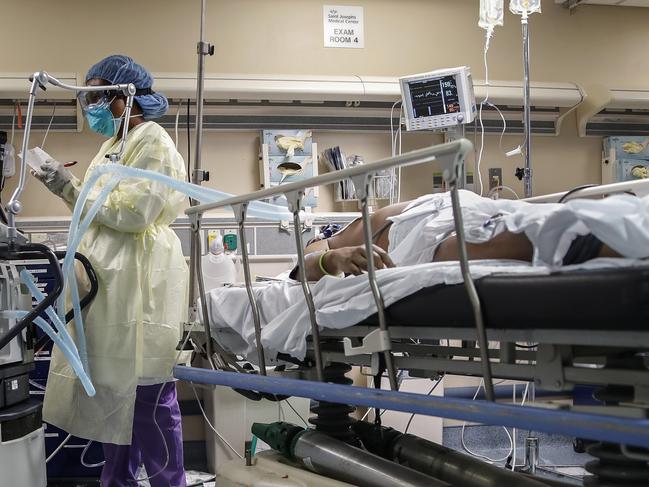
But Dr Levitan said coronavirus caused “silent hypoxia”, which meant that very low oxygen saturation levels might not be detected until readings were as low as 50 per cent, with patients not experiencing shortness of breath until their levels were critical.
This means by the time sick people present at hospitals, they almost certainly have to go onto respirators. In the US, authorities are advising that 80 per cent of COVID-19 patients do not come off ventilators alive.
Dr Levitan says this monitoring at home could alert patients for a need to seek treatment before their oxygen levels dip too dangerously low.
“Widespread pulse oximetry screening for Covid pneumonia - whether people check themselves on home devices or go to clinics or doctors’ offices - could provide an early warning system for the kinds of breathing problems associated with Covid pneumonia,” he wrote in The New York Times.
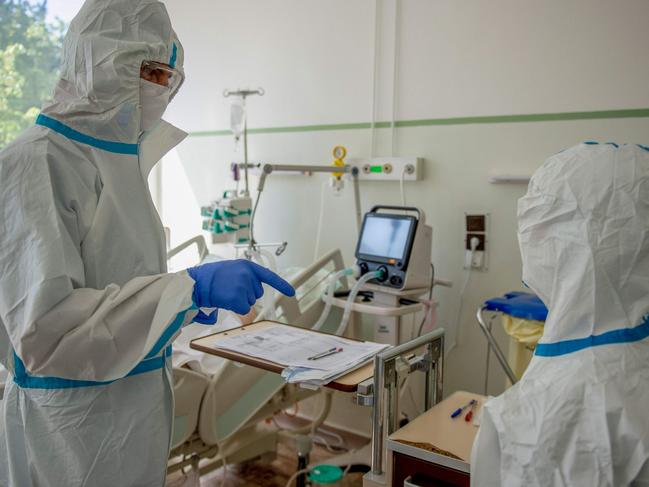
People with known respiratory issues could especially benefit from buying a pulse oximeter.
Meanwhile, people in the UK are being offered $A1200 to take part in Britain’s coronavirus vaccines trials.
Imperial College London, Bristol Children’s Vaccine Centre and University Hospital Southampton have advertised for people to take part in trials as the world races to find a vaccine for the deadly virus.
Healthy volunteers aged 18-55 are being sought for the trials, which are expected to last six months, with Imperial’s trials set to begin in June.
The University of Oxford is due to begin its own human vaccine trials tomorrow.
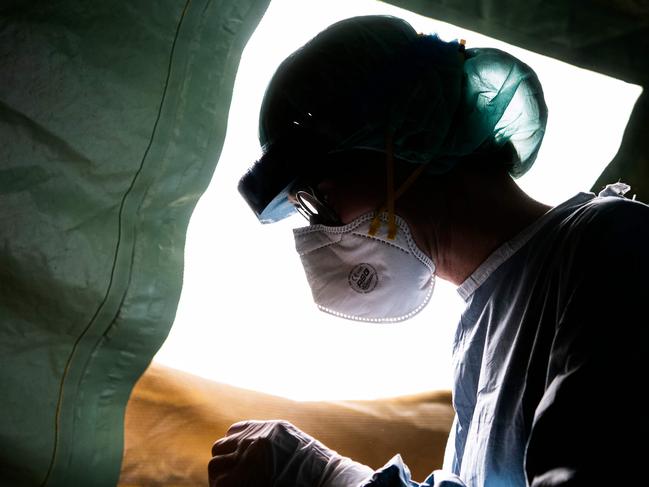
In other medical news, University of Louisville researchers have developed a technology that is believed to block the novel coronavirus SARS-CoV-2 from infecting human cells.
The technology is based on a piece of synthetic DNA – an “aptamer” – which targets and binds with a human protein called nucleolin.
Early tests show that this aptamer may stop viruses, including novel coronavirus, from “hijacking” nucleolin to replicate inside the body.
University of Louisiana academics have previously used it in a variety of ways, most notably as a potential therapeutic drug against multiple types of cancer.
‘SUPER VACCINE’ COULD PROTECT AGAINST COVID-19
A vaccine commonly used to protect against mumps, measles and rubella known as MMR could be effective in protecting against coronavirus, with trials to start ASAP.
Experts from the University of Cambridge say the MMR jab, which is typically given to all infants from nine-months-old, including in Australia, could be the reason why children are not as severely affected by COVID-19.
Writing in a new study, the researchers said: “We hypothesise that MMR could protect against poor outcome in COVID-19 infection.
MORE: Aussie virus deaths rise as Trump stops immigration
Ask the experts: advice for vulnerable patients
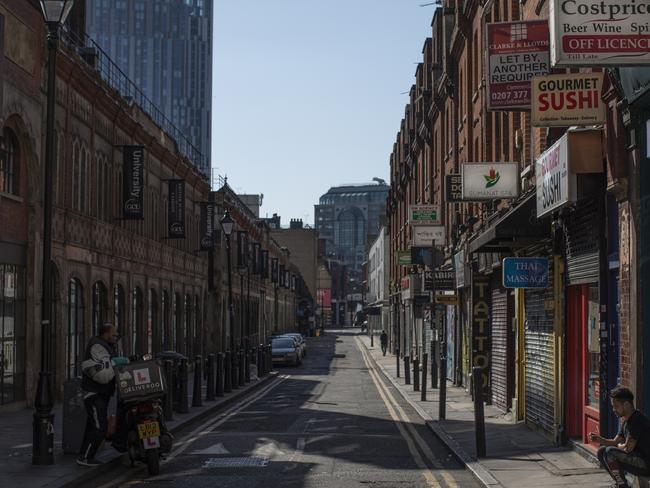
“We therefore propose that vaccination of at-risk age groups with an MMR vaccination merits further consideration as a time-appropriate and safe intervention.”
Their revelation comes as trials are beginning to see if the BCG injection, given to many Brits to prevent TB but which is not used in Australia, can also protect against coronavirus.
The Cambridge scientists made their suggestion about the MMR jab after analysing the structure of MMR viruses.
They discovered that the “spike protein” of SARS-CoV-2 is 20 per cent comparable to the measles “fusion protein”.
In other news UK Health Secretary Matt Hancock said that a potential jab which has been developed by Oxford University will start being tested in just two days.
“I can announce that the vaccine from the Oxford project will be trialled in people from this Thursday,” Mr Hancock said.
“In normal times, reaching this stage would take years and I’m very proud of the work taken so far.
“At the same time, we will invest in manufacturing capability so that if either of these vaccines safely work, we can make it available for the British people as soon as humanely possible.”
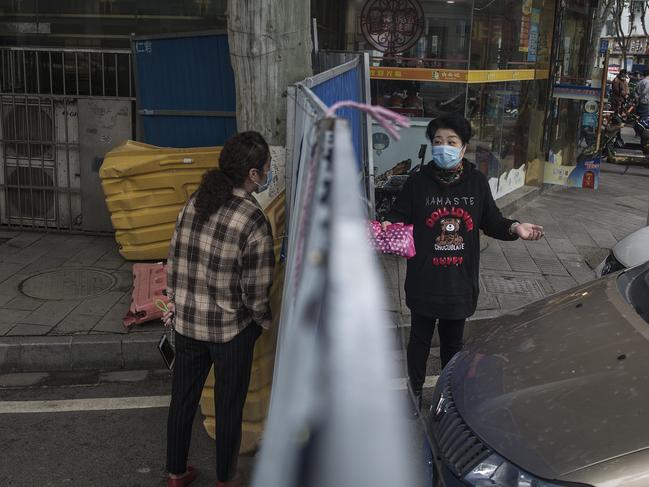
Professor Sarah Gilbert, who is leading the Oxford team, said that a vaccine could be available for use by the general public by the northern autumn.
She said: “Personally, I have a high degree of confidence. And, I think, it has a very strong chance of working.”
RELATED: Malaria, HIV drug approved for COVID-19 trial
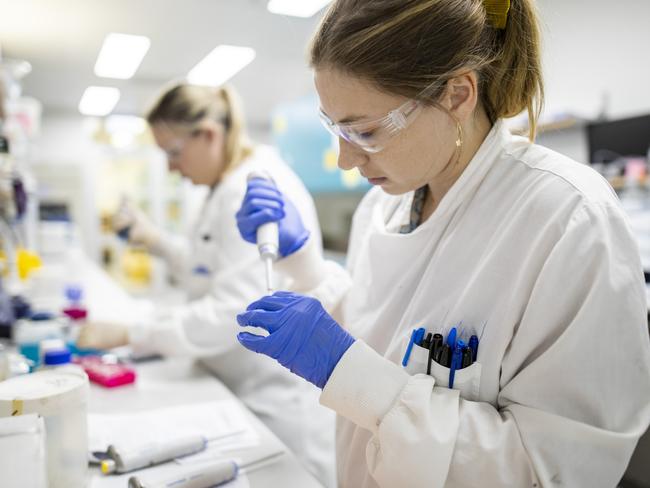
Mr Hancock said the process for finding a vaccine would take “trial and error” but he has told UK scientists leading the search he would “back them to the hilt and give them every resource they need” in order to succeed.
“After all, the upside of being the first country in the world to develop a successful vaccine is so huge that I am throwing everything at it,” said Mr Hancock.
Meanwhile, as countries grapple with the issue of implementing more and faster testing to reopen their economies, to speed up the testing process and protect lab workers, a software and robotics company is leading an effort to develop a robotic system that can process COVID-19 test samples with little human involvement.
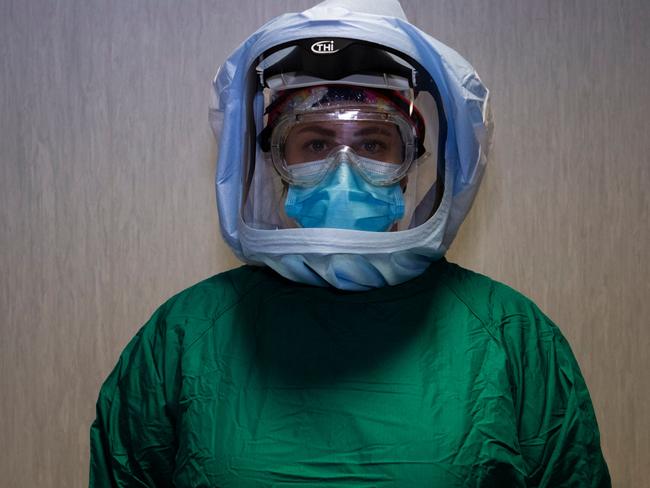
Automating the lab testing process would also allow testing to be done 24/7, greatly increasing the volume of tests done per day, according to the company.
“I’ve been a part of projects where people think ‘robots are trying to take my job,’ but in this case it’s really saving lives,” said Hagai Bar, system engineer at Bright Machines.
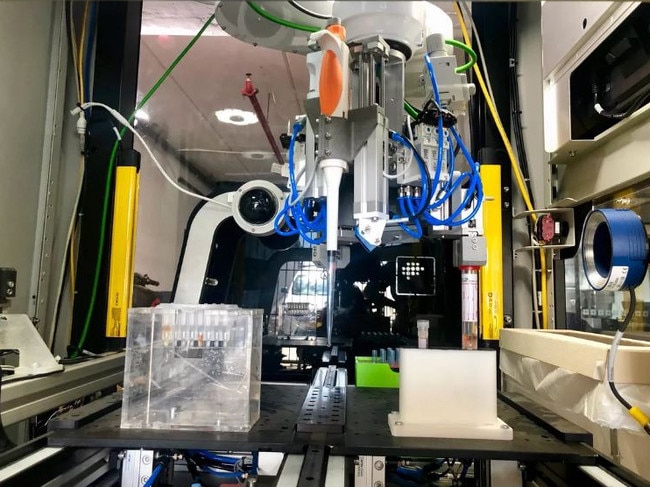
“You’re just replacing all that unnecessary manual work.”
“This project really highlights the importance of automation in manufacturing in general, and in the medical field specifically. Redundant, risky manual labour is removed. And robots don’t get tired and don’t make mistakes - testing labs can operate around the clock.”
Originally published as A simple device that measures ‘oxygen saturation’ may save COVID-19 sufferers from ending up on ventilators
